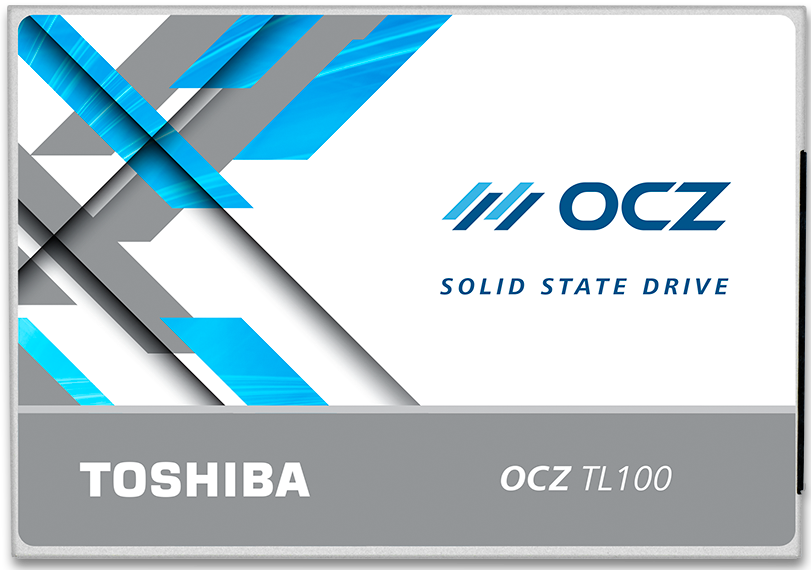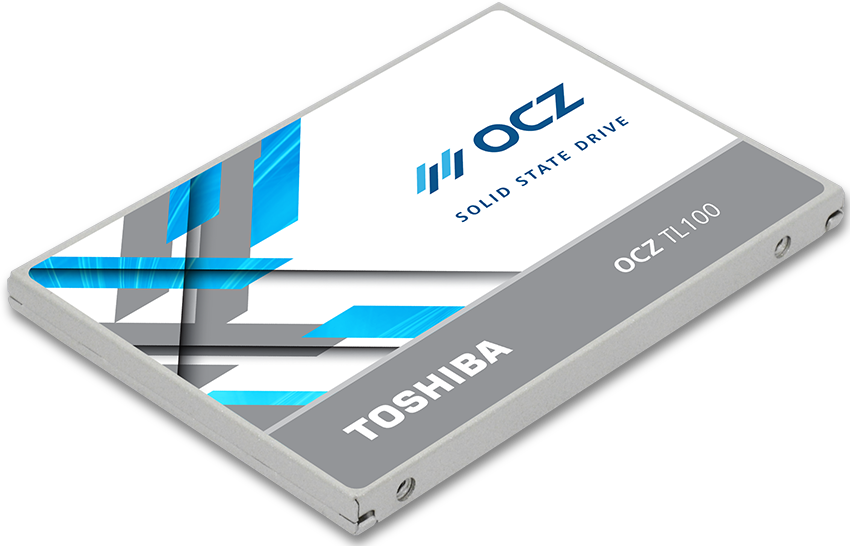
Toshiba a couple of weeks ago rolled out a new family of OCZ-branded solid state drives – the XV500 series – targeting mainstream desktop and notebook owners interested in replacing their tired (and slow) spinning hard drive.
Now, Toshiba is addressing the entry-level market with its new OCZ TL100 family. Offered in capacities of 120GB and 240GB, both drives dish up sequential read and write speeds of up to 550MB/sec and 530MB/sec, respectively. Random read speeds on the two drives are identical at up to 85,000 IOPS, as are random write speeds at up to 80,000 IOPS.

In addition to its higher capacity, the 240GB should be a bit more durable as it’s rated for 60 TBW (total bytes written) with an average of 54GB per day. The smaller 120GB SSD can only do half that at 30TB or 27GB/day.
Both 7mm drives utilize Toshiba’s TLC (triple level cell) NAND flash and come backed by a three-year advanced warranty program. They also both consume a maximum of 1.6 watts and come with OCZ’s SSD management software. It’s unclear, however, which controller is running the show.
As for pricing, the 120GB TL100 will set you back just $44.99 while the larger drive commands $67.99. Toshiba hasn’t yet said when the drives will go on sale although I suspect they’ll drop in time for the holidays.
https://www.techspot.com/news/66484-toshiba-announces-entry-level-ocz-tl100-family-ssds.html